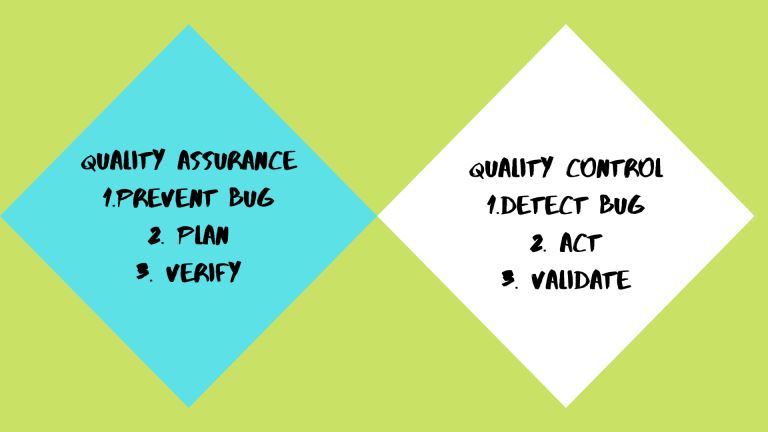
Quality Assurance: What are the Qualities of a Great QA
pThere are a couple of qualities that a great quality assurance possesses great communication skills listening skills attention to detail organizational skills leadership skills analytical skills understanding of the customers needs team player and c
Before getting staffing QA services, it'd be wise to learn about their qualities; this won't only be useful to your business but to guide you when looking out for the best QA to hire. This article is informative enough to help you learn about the qualities of a great QA.
There are a couple of qualities that a great quality assurance possesses; great communication skills, listening skills, attention to detail, organizational skills, leadership skills, analytical skills, understanding of the customer's needs, team player, and confidence. Keep reading for more details.
Keep reading to learn more about how to improve your quality assurance skills.
Quality Assurance: What are the Qualities of a Great QA
The corporate world is slowly moving from concentrating more on academic qualifications and is now keen on personal skills and abilities. Quality assurance skills will differentiate who gets the placement or not.
Below are some salient skills that a great QA should have:
1. Good Communication Skills
A good QA should have verbal, written, or non-verbal communication skills. Communicating effectively to address the staff, stakeholders, business partners, and customers would be best. Poor communication skills will lead to misinformation and people following the wrong instructions. You also need good written skills, as non-verbal communication can pass information. You should be able to write data that can be easily understood and use language that the intended receiver can understand clearly. In addition, you should remember non-verbal communication, like eye contact, posture, and body language. Your body will communicate more, thus ensuring that the non-verbal cues are intact.
2. Listening Skills and Close Attention to Detail
Listening is one of the essential skills you should have as a quality assurance specialist. Effective communication cannot occur until you listen and understand what the other party is saying. You should be attentive and keen on details and note down all the essential points to have a referral point. As a great QA, you should be attentive at all times. Your observation skills will help you enhance product quality and safety.
3. Organizational Skills
Organizational skills will help you manage your time, energy, and resource efficiency while achieving your goals. Organizational skills help you get results and be your best at the workplace. Below are tips on improving your organizational skills:
| Physical organization |
A physical workplace is crucial as it will enhance your products and enable you to get what you will effortlessly. |
| Digital organization |
Technology has significantly advanced, and many people are saving their files digitally. With good organizational skills, locating your files and folders will be easy. |
| Planning |
It would help if you had both short and long-term plans. Have plans that are achievable and have a time plan for achieving them. Proper planning will help you achieve your goals and boost productivity. |
| Time Management | With business, every second counts. It would help if you, therefore, planned your time effectively. Setting your priorities right will aid you in managing your time. |
4. Leadership Skills
Great leaders have excellent quality assurance skills. As the head of your organization, you need to have excellent leadership skills. Below are the qualities of a good leader: Creative, Patient, Positive, Flexible, and Time manager. As a leader, you must inspire change and go out of your comfort zone to ensure the business transformation is intact and the customers are satisfied.
5.. Analytical Skills
As a great quality assurance person, you need to have analytical skills since you will have to analyze different aspects of the business and interpret the same to everyone in a language they understand. Analytical skills will help you track your business productivity.
6. Understanding the Customers' Need
Customers are the centerpiece of every business organization. You will have to assess the customers' requirements. You must understand what the customers and clients want, explain the same to your staff, and execute the outcome. Keeping the customers' needs in mind will boost your profits by bringing in new customers while retaining the previous ones. You cannot be a great QA without being a team player. When you work as a team, you will have different ideas leading to better productivity.
7. Confidence
As a QA expert, you need to have confidence. Confidence will help you communicate properly and solve problems effectively. Being confident benefits the organization as you can handle any situation head-on.
How to Improve Your Quality Assurance Skills

Improving your quality assurance skills is crucial as it will boost your productivity. The following factors will help you improve your quality assurance skills:
1. Add More Skills
By undertaking additional training, you will be more knowledgeable and possess. The lessons you learn from additional training will sharpen your skills and teach you how better you can relate to other staff members. Additional training will not only improve your quality assurance skills but will also increase your relevance and salary.
2. Schedule your Time
Proper time management is essential. To improve your quality assurance skills, you must be adequate time management. Scheduling time will help you avoid missing out on crucial details. Put a structure and timer in place to avoid idling or staying in one place while other duties are unattended.
3. Own your Work
Taking ownership of your work will increase your responsibilities. When you are responsible, quality assurance will improve. With the added responsibility, you will have to be keen and focus on all the details that matter.
4. Set your QA Strategy
Proper planning is essential. A strategy will guide you on how to gauge your staff's performance, business progress, and performance. Set your goals and how to plan to implement them. However, remember to be a team player because you will not achieve anything without team support.
5. Effective Coaching
Coaching is an essential part of the quality assurance process. Coaching will help your staff improve quality assurance skills and offer better services. You can consider having team building to enhance teamwork.
6. Reports
Creating daily, weekly, and monthly reports will significantly improve quality assurance skills. You can see the progress and analyze everyone's performance through the reports. Reporting will act as a roadmap for your organization.
7. Proper Documentation
To improve quality assurance skills, you must implement proper documentation in your organization to document all the rules, procedures, and transactions. You can also record all the calls, emails, and other interactions. The recordings will benefit you when you handle your auditing reports and when you want to improve your customer care skills.
8. Stay Focused
When you focus on your priorities and stick to your schedule, you can improve your quality assurance skills. Always focus on your work, and your quality standards will increase.
9. Follow-ups
Ensure you follow up on your customers' complaints and staff's needs. By doing so, you will be conscious of the challenges the two teams are facing, and you will be able to devise a long-lasting solution.
What are the Differences between Quality Assurance and Quality Control
Quality assurance is the process of creating a software application with fewer flaws. QA ensures that methods and techniques designed for the project are correctly implemented. QA is completed before QC. On the other hand, Quality Control is a software engineering technique that affirms that its operations meet the required quality standards. In summary;
Quality assurance and Quality control are mainly used interchangeably. The table below elaborates more on the differences between QA and QC:
| Quality Assurance | Quality Control |
| Its primary function is to ensure that quality assurance is achieved. |
It focuses on fulfilling the quality requested. |
| It is the method of managing quality. |
It is the technique to verify quality. |
| It is a managerial tool. |
It is a corrective tool. |
| It is involved during the development process. |
It is sidelined during the development process. |
| It is process oriented. |
It is product oriented. |
Conclusion
Quality assurance is an essential aspect of our day-to-day activities. You should have the skills of a great quality assurance expert. These skills will help you improve your leadership skills and boost your productivity level.
Having the skills is not enough. You should also aim to improve your skills. As your enterprise grows, you should also grow to fit in and offer better services. You can use the above guidelines to improve your quality assurance skills. Reach out to Guru Solutions for professional Staffing QA services.








